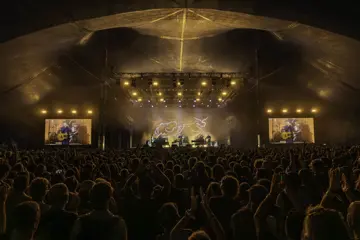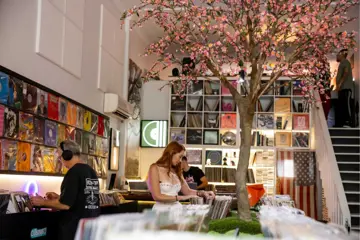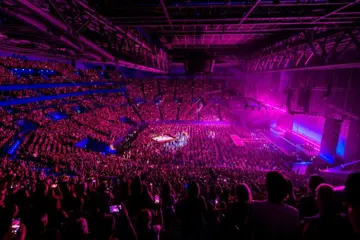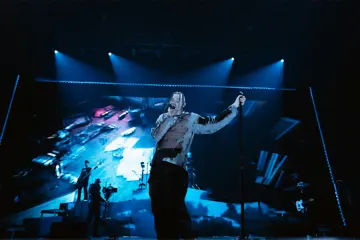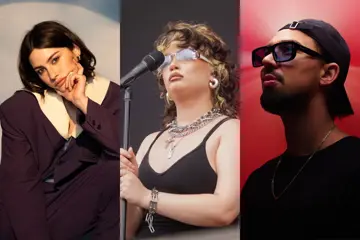In some ways, art galleries are the perfect place for experimental American recording artist Grouper to perform. Liz Harris sees her songs as groups of sounds that she's simply collected and arranged, and it's hard not to see the similarities between the construction of her music and the curation of a gallery.
The first notable difference between tonight's show and performance at a traditional venue would be the seats. The audience is packed into the slightly uncomfortable chairs inside the cinema, waiting with a similar sense of anticipation that one would expect from the unveiling of an important piece of art, or a lecture from a wise and learned professor; there is no music playing in the background, and the chatter from the crowd is quiet and hushed.
Nonetheless, it's still surprising to hear a performer greeted with silence and reverence rather than cheers and applause as Harris takes to the stage, treading softly in a pair of red socks. She sits in the centre of the wooden floor, between two yellow spotlights, surrounded by her recording equipment - there's mixers, amplifiers, pedals, a guitar, and a suitcase forming a ring around her. Her position in the middle of all this gear, and her beige, loose clothing, makes her look like she's ready to perform some type of meditation. And as the cinema screen behind her flickers to life with the opening sounds of Heavy Water/I'd Rather Be Sleeping, the effect is like being in a halfway point between dreams.
This liminal state of in-between, of a place that's more recognisable by its shadow than its physical structure, is reflected further in the images on the screen. The best and broadest way to describe them is probably 'existential', as they seem to exist for the purpose of creating an immersive (and at times overwhelming) experience more than anything else - we see extreme close-ups of life on almost microscopic levels at times, before a long-shot of an empty street or a lonely beach throws the perspective into a grander scale. In one striking moment, the side-profile of a woman is superimposed over footage of the ocean as the shapes of the water ripple in and out of her silhouette.
Don't miss a beat with our FREE daily newsletter
It's hard to discern individual songs, although Harris sings about four in total, and disperses instrumental interludes and sketches between them - it sounds like she might be singing the word 'memories' at one point, but soon this too is just as difficult and elusive to pin-down as memories themselves; when she finishes her set, it feels impossible to tell how much time has passed.





